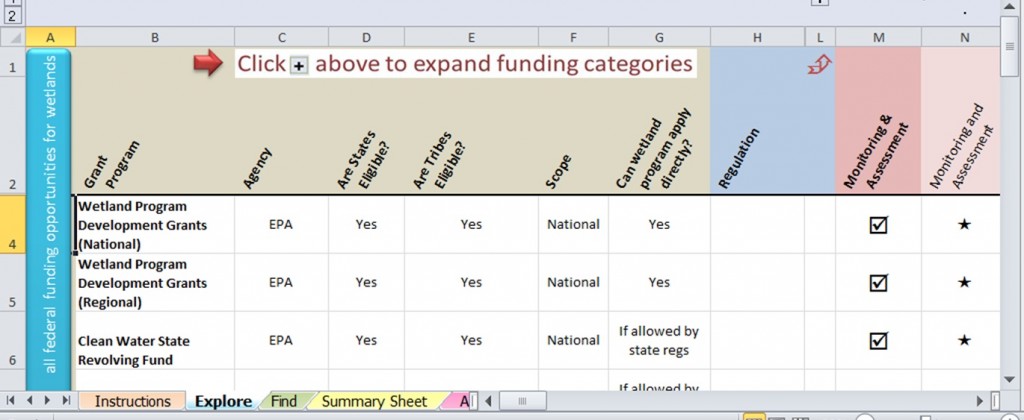Glenn Barnes is a senior project director at the Environmental Finance Center at the University of North Carolina. Glenn is the project manager of the Sustainable Finance for Wetland Programs project funded by the U.S. Environmental Protection Agency.
If I am leading a workshop or giving a presentation on any environmental finance topic, most likely at some point these five words will leave my mouth: “Grants are not sustainable finance.”
I say this phrase so often that I am quoted saying it in news articles and teased about it by other presenters. Someday this is likely my destiny:
The reason I say the phrase so often is because it is true—grants are not sustainable finance, nor are they intended to be. With few exceptions, grants are competitive, these days highly competitive, and governments should not rely on them as a continuous source of funding for their programs. Grants are also not “free money.” Applying for grants can take a lot of staff time and resources, as can grant reporting requirements, and frequently grants require a percentage match for projects. Also, grants often come with restrictions on how they can be spent.
Nevertheless, grants can be an important source of revenue for discrete projects, and grants also provide needed funds for program development and expansion. Grants can also fund aspects of programs that do not have a natural sustainable revenue stream.
For the past several years, the Environmental Finance Center has led an effort to help state and tribal wetland programs achieve more sustainable financing for their work. Across the country, many wetland programs struggle to find enough funding to meet all of their program needs. Our workshops and resources promote the idea that states and tribes should seek out a diverse set of funding resources for their programs, including state and tribal funds, partnerships with governmental and non-governmental entities, and federal grants.
State wetland programs use a wide range of funding sources for their programs including permit fees, general fund revenue, special taxes, license plate profits, and lotto proceeds (the most recession-proof of all funding sources). Tribes have fewer revenue options because they do not have the legal authority to tax their residents, but they have also found creative funding sources including casino profits, lease payments for tribal land use, and fee-for-service models. Both states and tribes have forged important partnerships with other governmental agencies, local governments, universities, land trusts, conservation groups, and others.
However, federal grants remain the primary source of income for most state and tribal wetland programs. As expected, the U.S. Environmental Protection Agency provides important funding for wetland programs, including Wetland Program Development Grants, but several other federal agencies offer wetland grants. These agencies range from more environmentally-oriented agencies such as NOAA and the U.S. Fish and Wildlife Service to some more unexpected departments including Homeland Security, Transportation, and Defense. In some cases, only states or eligible for the grants, while in other cases only tribes can apply. Some grants are only available to states and tribes in certain regions of the country. In a few instances, wetland programs are ineligible to apply for the funds directly but must instead partner with other state and tribal agencies to obtain the funds.
To help states and tribes navigate through these federal grants, the Environmental Finance Center has created a free on-line interactive reference guide:
States and tribes can use the Excel tool to identify grants available for specific program activities of wetland programs and to see whether they are eligible to apply. There are links to additional information on each of the grants as well.
While states and tribes should continue to pursue more stable and sustainable revenue streams, federal grants will remain a key piece in the overall wetland funding pie.




One Response to “Finding the Right Grant for State and Tribal Wetland Programs”
Christine Boyle
Glenn — Great blog post here and may we never live to see your gravestone! Your critically re-think what sustainability means and provide terrific tools for local governments. nice write up!